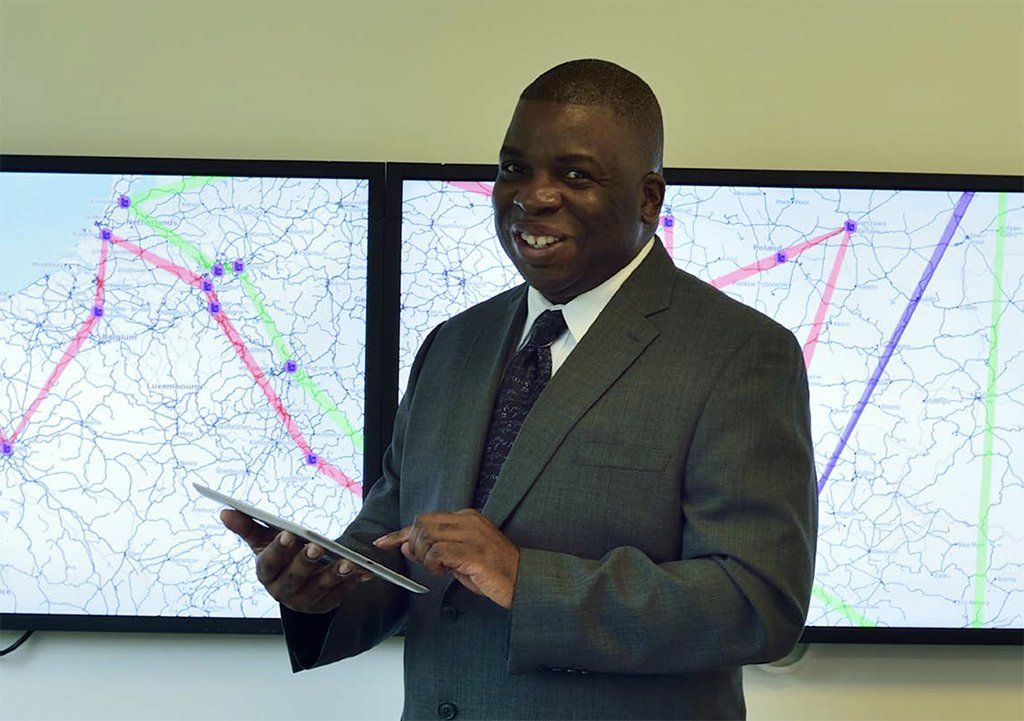Do I look like a Boxer?
DR NIRA CHAMBERLAIN
IMMEDIATE PAST PRESIDENT OF THE INSTITUTE OF MATHEMATICS AND ITS APPLICATIONS
CHAIR OF THE BLACK HEROES OF MATHEMATICS CONFERENCE AND PATRON OF THE STEVE SINNOTT FOUNDATION
One day while walking down a high street in a foreign country, the residents there thought I was the boxer, Iron Mike Tyson! Little did they know that I was not a boxer I was actually a mathematician!

My name is Dr Nira Chamberlain OBE and I am a Professional Mathematician. However, I was not destined to be a mathematician.
Let’s start with this quote:
Do we agree or disagree with this statement?
Those who disagree (which is their right) may say that opportunities are open to everybody! However, if we just take the United Kingdom for example, Black Caribbean children are three times likely to be excluded than their white counterparts.

This is one example of frightening disproportionate statistics. Another is the fact, despite making up 14.2% of the total population, Black Americans receive about 7 percent of the doctoral degrees awarded each year across all disciplines, but they have received just 1 percent of those granted over the last decade in mathematics. For a Black Mathematician, What It’s Like to Be the ‘Only One’ - The New York Times (nytimes.com) In the face of such statistics, some will argue that opportunities are equally distributed but it is the talent which is not. There is this horrible stereotype which is played out either in a biased or unbiased way that “Black People are Intellectually Inferior”. The unwelcome revival of ‘race science’ | Race | The Guardian. Though I am unclear of the origin of this statement, from personal experience I know that is damaging to the person that receives and believes it.
As Educationalists, no matter who we are, Black, White, Yellow, Teacher or Pupil, we have to challenge negative perceptions of ourselves and others that will lead to reduced life opportunities. We all grow stronger and our lives are richer in a diverse community.
So, what was my personal experience?
When I was eight, I loved playing with calculators, pressing buttons at random pretending I was a “Super Mathematician”. However, by the time I was 15, my career teacher asked me what I wanted to be when I grew up. I stated that I wanted to be a mathematician (or something like that). The career teacher said that someone of my physique should become a boxer! I went home and told my Dad. My Dad was born in Jamaica and is part of the Windrush Generation, immigrants from the Caribbean who came to the UK in the 50s and 60s. Now my Dad, who has not received formal higher education and worked in the car factory told me this, “You don’t need anybody’s permission to be a great mathematician”.
I only half believed my father at the time but went on to do A levels, Degree and a Masters in mathematics. However, I was persuaded and discouraged to do a PhD. “Black people don’t do PhD in mathematics, we are not clever enough”. (See Is Science
for Us? Black Students’ and Parents’ Views of Science and
Science Careers - ARCHER - 2015 - Science Education - Wiley
Online Library
for similar quotes.)
However, when I was in my 30’s and my son was 4 his Infant school teacher ask him who he wanted to be? My son said he wanted to be a mathematician. The infant school teacher said to my 4 year old son, “You will never be a mathematician but you might grow up to become a singer!” From then on, hearing this and finally fully believing what my Father told me I started studying for a PhD and became a Professional Mathematician.
Today, I am the Chair of the Black Heroes of Mathematics Conference – showcasing inspirational Black mathematical role models from around the world. I also was awarded the OBE after been named on the Queen’s New Year’s Honours List.
I wish to declare that mathematics is for everybody and so is education for everybody.
I ask, do I look like a Boxer? Or more importantly am I the content of my character inside?
First published in Engage 24.




